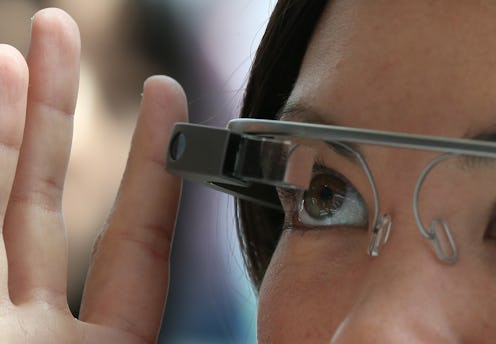The future is here, guys. Researchers at Georgia Tech and MIT have created something called BioGlass, a Google Glass app that allows people to monitor their own stress levels...which shouldn't really surprise anyone because last I checked Google Glass can literally do anything. The android app makes the magic possible by using the motion sensors embedded in the glass to actually pick up your body movements via heartbeat and breathing, and convert those physical signs into information about what is stressing you out. The tidbit about BioGlass on MIT's website details the mission of the app:
"What if you could see what calms you down or increases your stress as you go through your day? What if you could see clearly what is causing these changes for your child or another loved one? People could become better at accurately interpreting and communicating their feelings, and better at understanding the needs of those they love. The study described above explores the possibility of using sensors embedded in Google Glass to robustly measure physiological signals of the wearer."
The idea is that when there are significant fluctuations in heartbeat or respiration (both side effects of stress) BioGlass will record the information and let the user know what situations or people to avoid in order to curb the stress.
The idea is cool but, to be honest, this stress-reducing attempt is maybe a little more stress than it's worth. For starters, Google Glass itself is priced at a steep $1,500 which is debt I'm not willing to go into for something already attempted by other successful apps like Equanimity ($4.99), which helps you meditate, or Breathe2Relax (free), which guides you through breathing exercises that help bring down anxiety levels. Another reason this body-monitoring attempt might not work is that palpitations and irregular breathing can occur as a result of many different things, not just stress. According to the Harvard Medical School Family Health Guide, simple things like bending over or even drifting off to sleep can dramatically increase or decrease heart rate, and I definitely don't need Google Glass telling me to avoid sleep, I have piles of homework to do that already.
